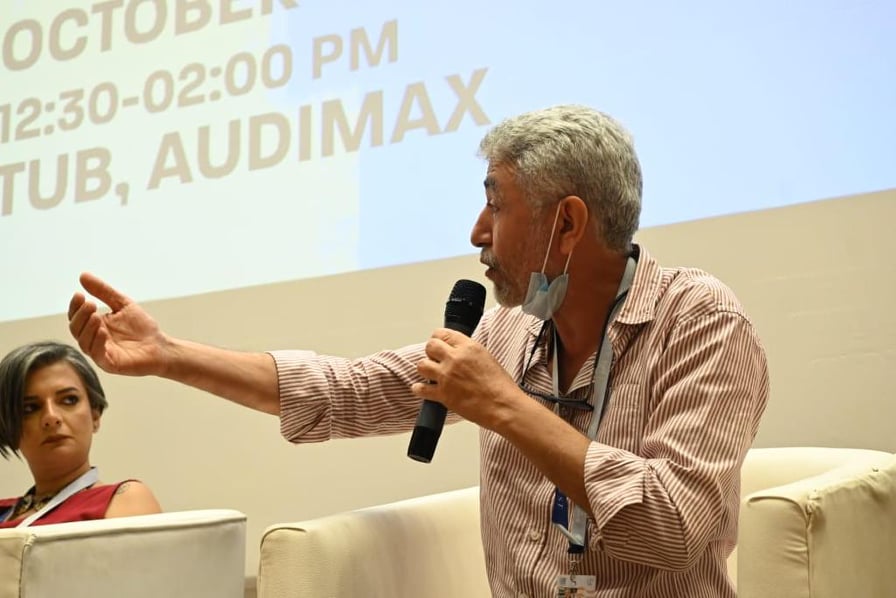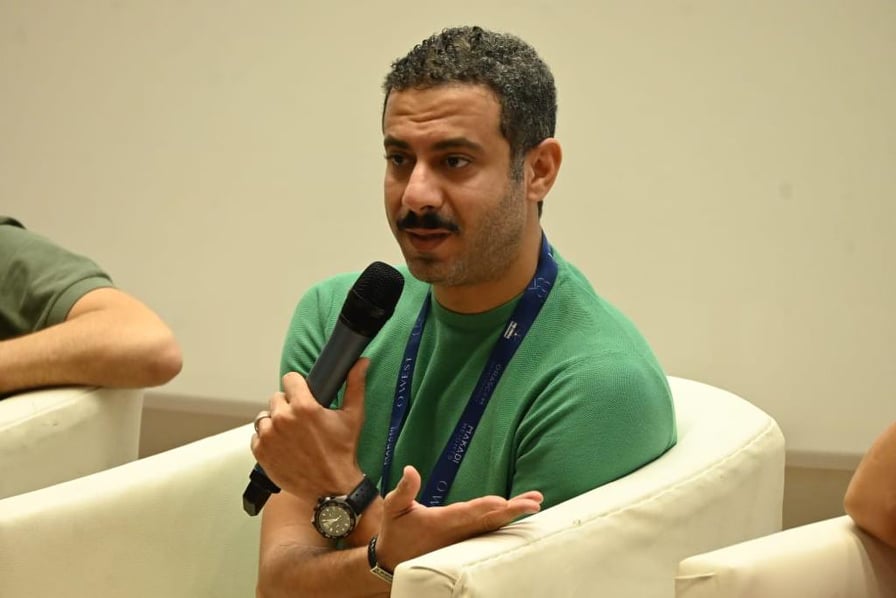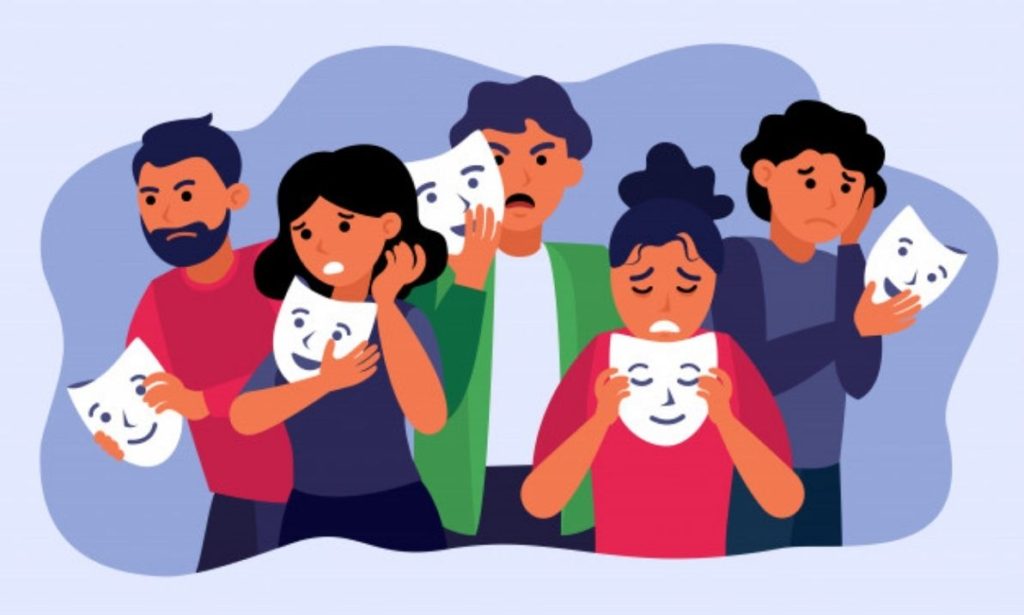It’s worth noting that there is a link between the acting profession and the psychological well-being of an actor, a link that has definitely been getting more recognition within the Arab region.
The issue that actors suffer from mental illnesses, or specifically depression, during and after playing a specific character is actually quite common. During El Gouna Film Festival last month, a symposium was held to address this issue and discuss the psychological well-being of actors. It’s important to discuss the distress that actors go through when in character, and we got testimonials from Ahmed Malik, Mariam Naoum, Mohamed Farrag, and Mai El Ghety about elements that need to be taken into consideration.
People have discussed all around the world the relationship between cinema and the artist’s personal life. To be able to convince people that you’re someone else, a character, the actor needs to be convinced themselves. They need to dig deep into their own souls and experiences, be in touch with their emotions, and have high empathy levels. When an actor goes through this for months nonstop until a project is done, it can be hard to leave that character behind and get back to yourself. Because what is yourself when every now and then you’re someone else?
It’s no secret that when an actor is a tool in the hands of the director, the producer, and even the stylist, they can lose themselves in the process. The pressure put on them by everyone in the process is hard to handle. Along with putting their heart into a role and fearing to be rejected by the audience or critics, it’s hard to handle the mental and psychological effort. All of this is mentioned with disregard to the fact that when an actor becomes super famous, their life gets more complicated as they try to live a normal, stress-free life. That’s a whole other problem.
What psychiatrist Nabil Al-Qat has to say on the psychological well-being of an actor

Dr. Nabil Al-Qat, the psychiatrist and board member of the Association of Evolutionary Psychiatry, and the American Therapy Association attended the symposium held during El Gouna Film Festival, and he had some things to say on the topic. He said that the new generation of artists is more aware of the relationship between mental health and art and that they take it more seriously. Whether at the level of speaking out loud about the psychological problems that the artist is exposed to or in terms of consulting specialists in dramas that deal with mental illness.
Moreover, for about five years, Al-Qat’s been hired to prepare with film and series makers, such as The Blue Elephant, and the series Under Control and Above Suspicions. He’s dealt with actors who were exposed to mental illness problems. For him, it’s important to spread awareness about the issue and to change the stereotypes about mentally unstable or sick people, and especially psychotherapists who work closely with actors.
Al-Qat stressed that depression is one of the most common psychological problems that the actor suffers from, be it during filming or after finishing the project. They can also suffer from severe anxiety, out of fear to disappoint the audience and public opinion. And most importantly, the fact that their job is not a stable job with a stable income is a stress inducer in itself.
Additionally, actors need to have high self-control abilities and self-awareness. However, an actor needs to separate work and personal life through adopting their own personal habits, such as reading, working out, or drawing, any sort of habit that can help them separate between who they really are from who they’re playing. Most importantly, they should seek help when needed, as this problem isn’t just actors-related, it’s also a problem of psychiatry as it needs to support the psychological safety of actors.
Actors on the psychological well-being of actors

The symposium’s attendees all had something to share on the topic. Mariam Naoum stressed the idea that directors need to find another way to motivate actors other than psychological pressure. It’s a given that it’s to get the actor’s best performance, but that method always backfires after the project is done. She also called for the presence of a psychologist on set, to ensure that the psychological balance required for workflow and the well-being of the cast is achieved. Which definitely will reflect on the productivity and creativity of the actors involved.

Ahmed Malek on the other hand admitted during that symposium that he was diagnosed with depression at some point. He stated that it was a result of dedicating himself, his time, and efforts to his work, that he was left empty by the end. He then talked about how contemporary methods of acting are mixed with drama therapy, which is using drama and acting to achieve therapeutic goals; basically getting the best out of drama instead of it getting the best out of you. He said, “Drama therapy is a method that opens the horizons of the artist, and seeks to achieve the balance between the actor’s real personality and the personality he performs in the artwork.“

May Elghety emphasized that the film industry and directors need to be more gentle with actors. They seem to forget that actors are real people who get sick, tired and need rest in order to give their best performances. Instead, they have actors working 16 continuous hours.
Elghety added: “The worst thing is that the directing team can ask the artists to perform regardless of their physical pain, not just psychological, which is what I was recently exposed to. When will it be acceptable for the actor to leave the filming site during his illness? I call on all actors to show solidarity with their colleagues and refuse to continue filming when tired.”

As for Mohamed Farrag, he stressed that the actor must be aware that they’re engaged in a psychological war between his real personality and the character they play. So there’s a lot of mental effort that needs to be spent to balance that out. He mentioned an experience he himself had when he played a character in Under Control. He said, “I had to psychologically train to know all the details of the character. So the actor must be honest with himself and familiar with the psychological and mental effort required of him to perform the character optimally.“
So while you think it’s easy being famous or acting, it is not. The emotional, mental and physical toll it has on a person is huge, and it’s important to understand the necessity of mental care for actors.



